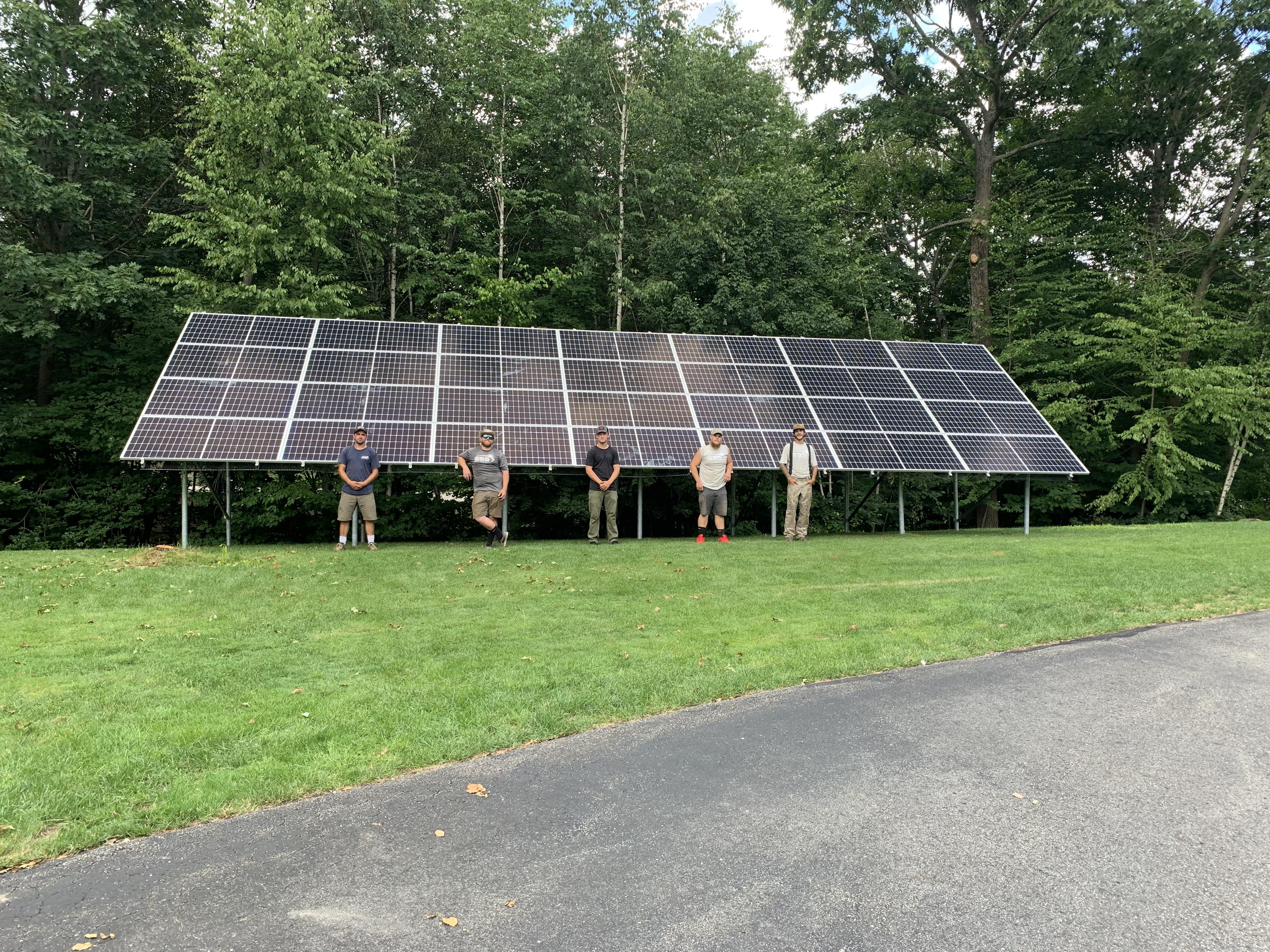Our awesome Install Team brings energy independence right to your front door here in the Granite State. They provide top-notch customer service and top-tier craftsmanship with every installation they do. Without their expertise and skills, Granite State Solar wouldn’t be able to deliver renewable energy solutions to Granite Staters, helping you reduce your energy bills and carbon emissions.

We recently had a chat with Nate Lamontagne, the Operations Supervisor at Granite State Solar, to find out what it’s like being a Solar Installer. We discussed their learning process, a typical day on the job, important qualities of an Installer and more.
Keep reading to learn more about the crew who helps you harness the power of sunlight!
What kind of training do our GSS Installers go through?
In the state of New Hampshire, Journeyman Licenses are required for individuals to install solar arrays without the supervision of a Master Electrician. To become a Journeyman, our apprentices must go through 600 hours of training in an approved electrical apprenticeship or training program. Once they complete their courses, they must pass an exam.
On top of that, they need to accumulate 8,000 hours of work under the guidance of a Journeyman or Master Electrician. Once they reach Journeyman status, they can continue advancing in the electric field and eventually become a Master Electrician after another 2,000 hours of work under a Master Electrician, followed by passing an exam.
At Granite State Solar, many of our Install Team members are currently apprentices working their way towards obtaining their Journeyman or Master Electrician Licenses. After a long day of installing solar panels and batteries, a lot of the team heads off to class to expand their knowledge in the electrical field.
When new Installers join the crew, they spend some time in the warehouse getting familiar with the different parts used for a solar installation. Once they can identify all the various parts and their purposes, they move on to job sites and assist with the prep work alongside the rest of the team. As they gain a solid grasp of the process, they take on more responsibilities at the job sites.
What’s the most challenging part of being a Solar Installer?
Extreme weather conditions pose a challenge for our Install Team. They always strive to complete all installations in one day, but sometimes it can be a real struggle when it’s snowing, raining, or scorching hot outside. During unfavorable weather, our team carefully assesses the situation to ensure safety and determine the best course of action.
What skills does one need to be a successful Solar Installer?
To excel as a Solar Installer, it’s crucial to have a positive attitude even in less-than-ideal situations like rough weather or challenging installations. We’re on the lookout for hardworking individuals who strive for excellence in every job. We also love Installers who are eager to learn and grow within their role. Also, since installing solar panels and batteries involves a lot of hands-on work, good manual dexterity and physical strength are essential.
What are the safety protocols you take at installation sites?
According to OSHA regulations, employees working at heights of six feet or more above the ground must be protected by a guardrail system, safety nets or personal fall arrest (PFA) systems. Safety is a top priority at Granite State Solar, and we ensure that all our Installers are tied off 100% of the time they are working on a roof. To guarantee their safety, we secure the ladders at the top and bottom, and we use a ridge hook to hoist the ropes up the roof. Once the ropes are securely attached to the roof, our Installers can climb up safely and start the installation process.
If you’re interested in becoming a Solar Installer on the Granite State Solar Team, reach out to us at info@granitestatesolar.com. We’d love to hear from you!



